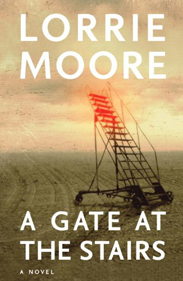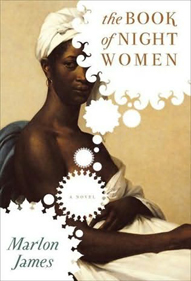-
March 17, 2010
Opening Round
-
Commentary by
Kevin Guilfoile & John Warner
-
Today’s Winner:
4The Book of Night Women
Kevin: I am a longtime reader/admirer of C. Max Magee (and like you, John, he gets extra points for being a former Chicagoan to boot). Also I haven’t yet read The Book of Night Women, about which many people have told me excellent things. I’m also told Lorrie Moore’s work is polarizing. So even though this is our first no. 4 seed to defeat a no. 1 in 2010, I won’t call this decision a shocker.
In fact, I can’t really argue with Judge Magee’s points, taken individually. (I don’t believe an author should be penalized for the cover of her book, as in most cases she probably had almost nothing to do with it, but I can’t dispute that the cover affects the experience of reading.) There is one sentence, however, where I don’t think he goes far enough. He says, “Lorrie Moore can really write.”
Yeah.
There are thousands and thousands of novelists who write better prose than I do. But the vast majority of them write sentences I can aspire to. That inspire me to be better. Lorrie Moore writes sentences I cannot write. I read her the way Andy Van Slyke must have watched films of Willie Mays.
Her writing is so good that, for me, it trumps everything else. There’s not much plot between the covers here. Not everything about the characters makes perfect sense, as Judge Magee points out. And I don’t care. When you read her your mind feels it has skates on, gliding effortlessly from page to page. It was absolutely one of my favorite books of the year.
I read an interview with her several months ago in which the interviewer made some assumption about why people read her books. Moore interrupted him and said something like, “That’s funny. I thought people just read for the company.”
Lorrie Moore is damn good company.
John: This matchup was brutal for me. These were two of the best books I read last year, period. I had planned to read A Gate at the Stairs the moment it came out but was put off by the mixed reviews. Thankfully, it’s inclusion in the Tournament tipped me off the fence because I loved it.
Like you say, Moore’s prose is amazing. At one point she describes road kill thusly:
Walking home, I passed a squirrel that had been hit by a car. Its soft, scarlet guts spilled out of its mouth, as if in a dialog balloon, and the wind gently blew the fur of its tail, as if it were still alive.
I think I just stopped and admired it for a while. Not only is there music there—soft, scarlet, spilled—but the concrete imagery of likening the guts to a dialog balloon is just perfect. I’d be happy to read a book by Lorrie Moore entirely about moldering food:
The Mexican strawberries in the refrigerator had grown the wise and cheery beards of Santa Claus, and some Peruvian pears were cauled with mold. The cream cheese was a tub of dull green clay.
I just love that shit. Nicholson Baker’s Paul Chowder (of The Anthologist) would have a field day doing scansion on it.
But like you say, Lorrie Moore is polarizing. For every rave there appears to be a rant. My friend Teddy Wayne, who is also a writer, almost couldn’t believe that I loved the book. He notes (correctly, I think) that Moore doesn’t manage to create a believable sense of verisimilitude that Tassie Keltjin, a 19-year-old college student, is narrating these events. He notes the relentless punning that every character indulges in. He points out that Tassie seems curiously passive throughout the entire book, as though she isn’t living her own life.
And yet, I didn’t care about any of those qualms because I just fell hard for the companionship the book provided me. I think some of the problem is that Moore isn’t acknowledged as what she clearly is (to me), a postmodern writer. Teddy sees A Gate at the Stairs as an attempt to create a generally realist coming-of-age novel, whereas I see all of her work (not just this novel) as essentially a mapping of Lorrie Moore’s very lively, utterly unique brain.
Kevin: I read a critique of A Gate at the Stairs in which the reviewer called it, with effective, attention-grabbing, Peckesque hyperbole, “(perhaps) the worst novel by a ‘name’ writer I have ever read.”
In the Birnbaum-Tobias Wolff interview you mentioned yesterday, Wolff said someone once defined the novel as “a prose narrative of a certain length that has something wrong with it.” The imperfect nature of the form is what makes literary criticism such delicious sport. If you want to dislike a novel you can make almost any claim against it and cherry-pick a passage that will back you up. Our literary opinions are so tangled with our emotions that your relationship with a particular novel is a lot like your relationship with a sibling. It depends on what and how much you are willing to forgive.
John: If you go to Moore looking for mimesis, you’re going to be sorely disappointed, and in looking at some of those negative takes linked above, I think that’s why these readers come away hugely disappointed. Even some of the positive reviews take her to task for some of the shortcomings as measured against a realist ideal. Rather than being created as independent characters, she populates the book with figures that are really just an extension of herself, hence the relentless punning, and the lack of interest in traditionally structured scenes or plot. The dialog comes off as “unreal” because we’re not reading dialog but Moore’s interior monologue split among characters.
And I loved it. Loved. It.
And yet, in this particular matchup, it would’ve been a Sophie’s Choice, but I also would’ve chosen Marlon James’s The Book of Night Women as the winner. If you have time to read any of the unread titles still in the Tournament, let me suggest this one. I thought it was an amazing, powerful, propulsive read. C. Max Magee compares it, justifiably so, to last year’s tourney champ, A Mercy, and I agree except to say that The Book of Night Women is way better. It hit me with a force similar to The Known World by Edward P. Jones, which is to say it bowled me over.
Sure, I could maybe share some of Magee’s qualms, that maybe the book could’ve been trimmed by 15 percent, but once again, the overall effect quieted any internal dissenting voices. I could go on, but since we’re going to have it in the next round, I’ll kick it back to you for now.
Kevin: Your admiration for The Book of Night Women is reflected in your confidence rankings, in which you had it rated second in the field. In one contest, the lead I have held through the first five matches evaporates. We are now dead even, 61-61.
Kevin Guilfoile is a contributing writer for TMN. His debut novel, Cast of Shadows, has been translated into more than 17 languages, and his second novel, The Thousand, will be published in August 2010 by Alfred A. Knopf.
John Warner is a contributing writer for TMN. He is the author of Fondling Your Muse: Infallible Advice From a Published Author to the Writerly Aspirant. He teaches at Clemson University.

















